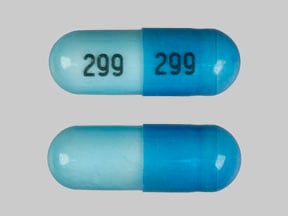
Phenytek Coupons & Savings Card – Discount Prices from $23.76
Brand for: Phenytoin sodium extended
My prescription
Edit
200MG, Phenytoin Sodium Extended (60 Capsules)
Select pharmacy

CVS
$53.62
COUPON PRICE
Albertsons
$23.76
COUPON PRICE
Walgreens
$26.67
COUPON PRICE
Walmart
$61.85
COUPON PRICEPhenytek savings card
Show this card to your pharmacist
Albertsons
$23.76
BIN
ID
PCN
GRP
019876
LHAF1AF7F4
CHIPPO
LHX
Powered by
Related anti-epileptics prescriptions
More prescriptions for epilepsy
Related anti-epileptics prescriptions
More prescriptions for epilepsy
Price history for Phenytek (brand) & Phenytoin Sodium Extended (generic)
60 Capsules, 200MG
Average retail price for Phenytek
Average retail price for Phenytoin Sodium Extended
Average SaveHealth price for Phenytoin Sodium Extended
Our price history data is based on aggregated prescription data collected from participating pharmacies in America. Our prescription data updates daily to reflect the latest price changes. If you notice a missing data point, it means there wasn't sufficient data available to generate a monetary value for that date.
Over the last 12 months, the average discount price of Phenytek is $53.78 using the SaveHealth savings card. That's an average savings of 56.28% on Phenytek with our discount card.
*Retail prices are based on pharmacy claims data, and may not be accurate when we don't have enough claims.
Phenytek (Phenytoin Sodium Extended) dosage forms
Dosage Quantity Price from Per unit 200MG 60 Capsules $23.76 $0.40 200MG 30 Capsules $15.63 $0.52 200MG 100 Capsules $34.60 $0.35 300MG 30 Capsules $19.68 $0.66 300MG 100 Capsules $48.10 $0.48
| Dosage | Quantity | Price from | Per unit |
|---|---|---|---|
| 200MG | 60 Capsules | $23.76 | $0.40 |
| 200MG | 30 Capsules | $15.63 | $0.52 |
| 200MG | 100 Capsules | $34.60 | $0.35 |
| 300MG | 30 Capsules | $19.68 | $0.66 |
| 300MG | 100 Capsules | $48.10 | $0.48 |
Is phenytek the same as Dilantin?
Phenytek and Dilantin are both brand names for the medication phenytoin, which is used to control seizures. While they contain the same active ingredient, they may differ in their formulation, such as extended-release versus immediate-release, which can affect how they are absorbed and processed by the body. It is important to follow a healthcare provider's guidance when switching between different formulations or brands.
What is the generic for Phenytek?
The generic name for Phenytek is phenytoin.
Using the SaveHealth discount card, what is the price of Phenytek without insurance?
Using the SaveHealth discount card, the price of Phenytek without insurance is $23.76.
What is the price of Phenytek at CVS?
The price of Phenytek at CVS is $53.62.
What is the price of Phenytek at Walgreens?
The price of Phenytek at Walgreens is $26.67.
What is the price of Phenytek at Walmart?
The price of Phenytek at Walmart is $61.85.
